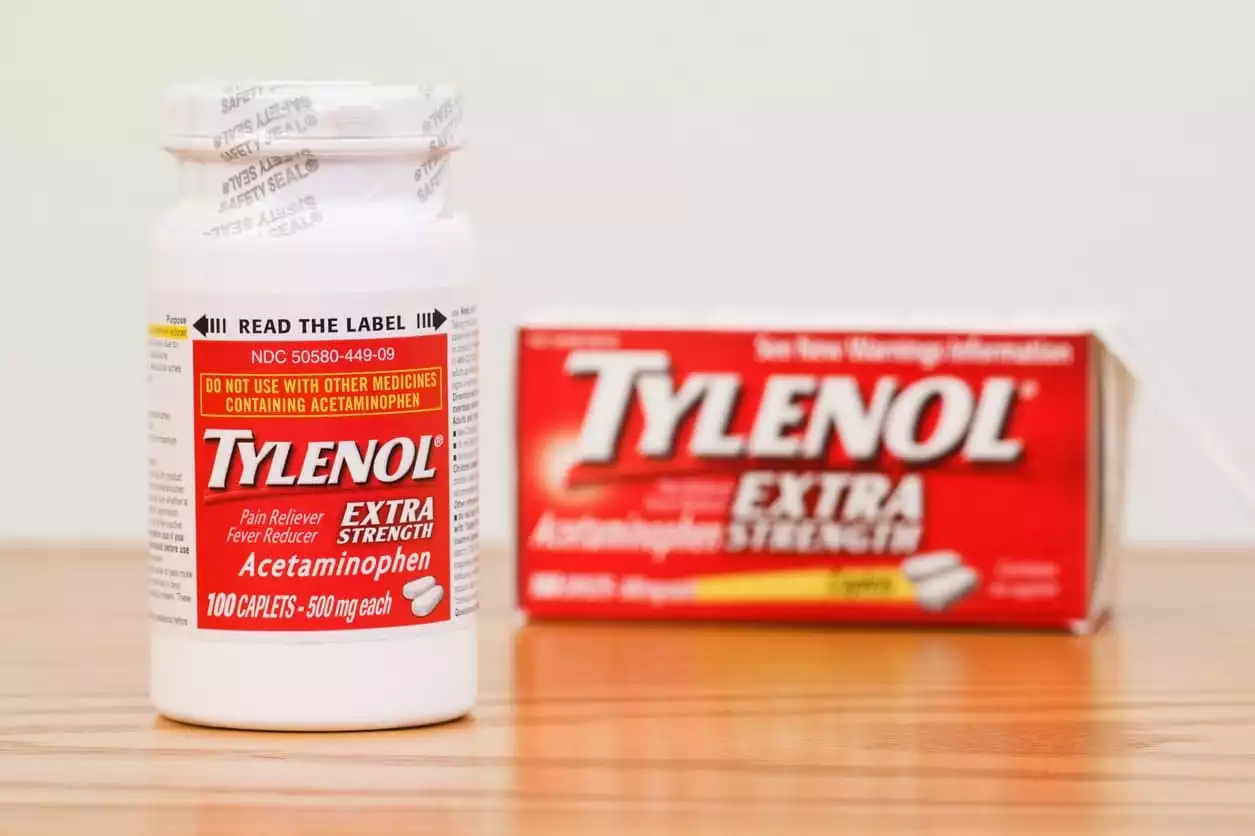
Mixing alcohol and medication can lead to dangerous consequences, but what about mixing alcohol and acetaminophen?
Tylenol, Ofirmev, Mapap, Nortemp, and a myriad of generic pain relievers all have one thing in common: they contain Acetaminophen, one of the most common pain relievers on the market.
While this drug has long been considered one of the safest pain relievers available for over-the-counter use, scientists are now questioning just how safe it really is – especially when mixed with alcohol and other intoxicants.
We want you to be safe, healthy and well, and that’s exactly why we’re sharing this information with you today.
In this post, we’ll talk about why alcohol and acetaminophen might be more dangerous than people realize and how you can ensure you take it safely if and when you do.
Why Is Acetaminophen So Popular?
A lot of alternative over-the-counter (OTC) pain relievers come with some significant side effects.
- Nonsteroidal anti-inflammatory drugs (NSAIDS) like naproxen (Aleve) or Ibuprofen can be difficult for the stomach and intestines to handle, especially if the person taking them already has stomach issues.
- They’ve also been tied to high blood pressure after continued use.
- Aspirin, which is also very common, can cause Reye’s syndrome in children and is also tough for adults to digest.
COX-2 inhibitors were created as an “answer” to the risks associated with Tylenol and other NSAID drugs.
This classification of pain reliever initially showed a great deal of promise because it could effectively reduce pain without damaging the gastrointestinal system.
They later fell out of grace because they were linked to a much higher heart attack risk.
The Result: Acetaminophens became the next most popular choice, perceived to be the least harmful.
The Effects of Acetaminophen on the Body
Acetaminophen is both an analgesic and a antipyretic, or a pain reliever and a fever reducer.
Its history of use dates back to the 1800s although the Food and Drug Administration (FDA) did not approve it for use until 1950.
Our bodies synthesize a chemical known as prostaglandins when we are sick or injured. Prostaglandins help to:
- Signal pain
- Induce fevers
- Create the inflammation that leads to swelling
Drugs that contain acetaminophens only block the pain and fever; they don’t contain anti-inflammatory properties.
Is Acetaminophen a Better Option?
One of the benefits of acetaminophen is that it works without causing stomach pain in most patients.
It also doesn’t thin your blood and impact clotting to the same degree as Aspirin and other NSAID drugs, which may make it a safer choice for some people.
When you take it properly (at the correct therapeutic dose outlined on the label), it can be a remarkably safe choice.
- The problem comes from when patients take it in excessively high doses.
- Chronic use can also be harmful to the liver.
What Are the Risks?
It’s not exactly the acetaminophen itself that becomes toxic. Instead, it’s the liver itself that produces a toxic compound as it breaks down and processes the drug.
Your liver can handle the detox process in small doses, but too much causes it to become overwhelmed, which leads to liver tissue and cell death.
Thousands of people overdose on Tylenol every single year.
An acute overdose can be reversed by giving a person activated charcoal to absorb the drug before it progresses further through the gastrointestinal system.
Doctors also use a substance called N-acetylcysteine to protect the liver after overdoses; however, this should not be used at home without supervision.
The Effects of Alcohol on the Body
It’s no secret that excessive alcohol consumption comes with significant health risks. It doesn’t matter if you drink heavily from time to time or if you abuse alcohol on a daily basis.
The changes alcohol has on your body begin with the first sip and slowly but surely add up with every drink.
How Does It Impact Your Body?
The real question is — how does alcohol not impact your body?
Alcohol has some sort of impact on almost every system within your body. Alcohol disrupts your brain’s ability to transmit messages, altering your mood, behavior, and your cognitive abilities.
- Excessive drinking can lead to heart damage or disease, ranging from high blood pressure to irregular heart rhythms.
- The immune system weakens, so your pancreas begins to produce toxins, and you may even be increasing your risk for developing certain cancers.
Then there is, of course, the liver. The liver is responsible for filtering toxins and other harmful substances from our bodies. Alcohol and acetaminophen together can therefore do more damage to your liver.
It’s also responsible for aiding the body in turning medications and vitamins into things our body can actually process and use.
The liver has a hard time processing alcohol. Similar to acetaminophen, it can only process alcohol in small quantities.
What it can’t process ends up in the bloodstream, which is how intoxication occurs. After regular and constant abuse, alcohol also begins to damage liver cells.
Alcoholics run a high risk of developing:
- Fatty liver disease
- Alcoholic hepatitis
- Cirrhosis
- Liver cancer
- Hepatic encephalopathy
- A number of other complications
Is It Safe to Mix Alcohol and Acetaminophen?
You can probably guess by now that the answer is generally no, you shouldn’t mix alcohol and acetaminophen.
Both can cause damage to your liver when taken in excess, and taking them together is especially problematic.
We already know the body can only handle certain amounts of acetaminophen. This is due to the toxic compound it excretes during processing.
The liver can only process a certain amount of alcohol at any given time.
Combined, alcohol and acetaminophen can completely overwhelm the liver. This causes:
- Unpleasant side effects ranging from heart palpitations to stomach ulcers.
- In cases where a person is overdosing on both, the liver damage and/or toxin build-up in the blood is often deadly.
Controlling Your Risk Factors
Casual drinkers who need to take acetaminophen should be able to do so relatively safely if they stay within the recommended guidelines.
It is important to make sure you are not taking more than the recommended dose of pain reliever in a 24-hour time period.
You should also check all other medications, especially if you have a cold, to make sure you aren’t unintentionally taking extra because it is contained in other products.
Other factors to remember include when potentially mixing alcohol and acetaminophen:
- Only take one product with acetaminophen at a time. Make sure your prescription pain relievers don’t contain the same product.
- Don’t take acetaminophen and alcohol at the same time – and try to space dosing out so you aren’t taking it right away afterward, either.
- Don’t drink more than three servings of alcohol per day while taking pain relievers.
- Talk to your doctor if you have pain for more than seven to 10 days, or a fever for more than three days.
- Individuals with an established alcohol abuse history should not take acetaminophen at all.
Conclusion
Your body (and especially the liver and kidneys) detox you every single day, including after you take drugs like acetaminophen.
Just remember that even your own body has limits, especially when processing toxins. Talk to your doctor if you are concerned about your alcohol and acetaminophen use.
You may be able to get treatment for your alcohol use and find safer alternatives to acetaminophen even if you have to temporarily use a different class of pain reliever.
Talk to your pharmacist today if you are looking for other pain medication with less side effects.

 info@burtsrx.com
info@burtsrx.com


